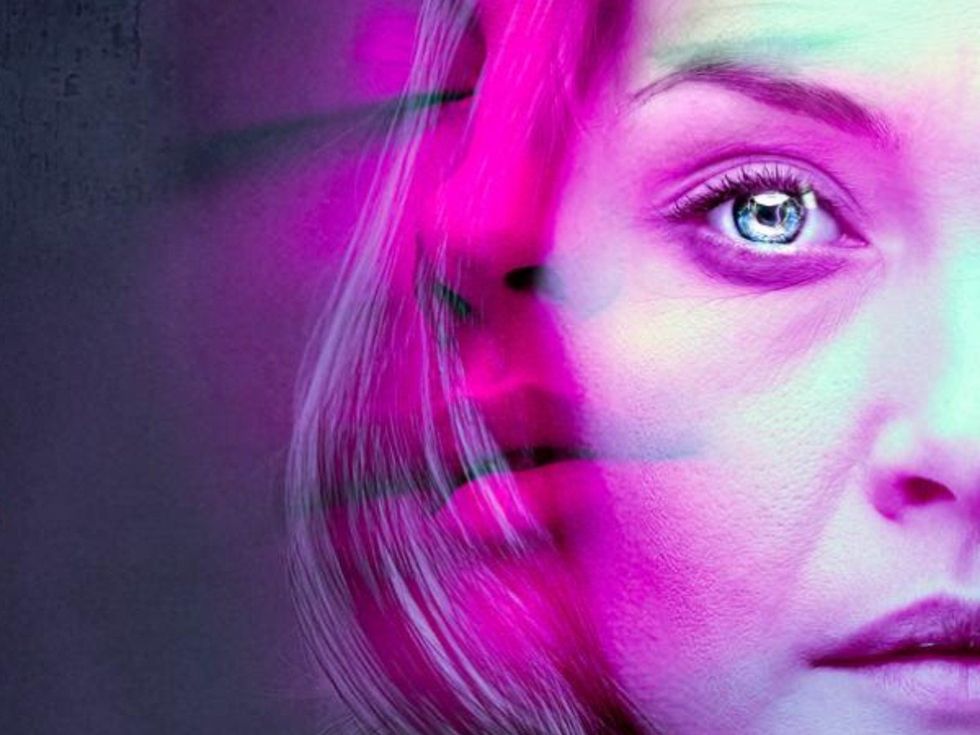If you’re the type of person who is open to anything, this weekend is going to a blast. You can drink copious amounts of Belgian ale downtown, consume sushi and matcha in Garden Oaks, watch a Japanese movie in the Museum District, listen to a football star’s mom speak near UH, hear an LGBTQ+ country star’s new album in Montrose, and get your heavy metal on in the East End.
Yeah, it’s one of those weekends where anything goes. Read on for this weekend’s best bets.
Thursday, June 25
The Flying Saucer presents 100 Duvel Pours
Next week, the Flying Saucer's downtown location will send server Andie Chisholm to Las Vegas to compete in the Duvel Perfect Pour competition. To practice, she is going to attempt to sell and pour 100 bottles of Duvel in one night. One of the signature characteristics of Duvel is its massive pillowy head that takes a bit of extra time and love to pour correctly. As one of the largest Duvel accounts in the world, the Flying Saucer believes this will mark the most Duvel poured by a single person in a day. 4 pm.
Mariachi Festival presents Catrin & Catrina Competition
This weekend, it will be showtime at Talento Bilingue de Houston as Mariachi Festival invites people to the Catrin & Catrina Competition. This is a free event, so come out and see some of the most beautiful, body-painted men (or “catrin,” which is Mexican slang for “a Dandy-like gentleman”) and women (or “catrina,” which is Mexican slang for “a well-dressed woman”). Mariachi Festival is a nonprofit organization founded in 2019, and their mission is to celebrate Hispanic culture through the arts. 6 pm.
Stomping Grounds presents Karina Nistal & the Cosmic Cats
Karina Nistal & the Cosmic Cats will be back at the Stomping Grounds in Garden Oaks this weekend. Join them for dinner from one of these amazing restaurants: Luloo’s Day & Night, Bollo Woodfired Pizza, La Mex, Rooster & Rice, Pho Fix, Himari Sushi, Sonoma Wine & Cheese, or Fat Cat Creamery. You certainly can’t miss all these cool options. There will also be a live fashion show from Gigi Jewelz after the performance. 8 pm.
Friday, July 26
Jurassic Quest
Jurassic World: The Exhibition is still making noise in Katy, but there’s another dinosaur-filled journey coming back to town this weekend. Jurassic Quest is a three-day adventure through 165 million years of dinosaurs where visitors can roam among the true-to-life dino herd, take the video tour, and enjoy plenty hands-on for kids with a giant fossil dig, inflatables, rideable dinosaurs, a live Raptor training show, real fossils, photo opps, and more. 9 am.
CLASS Bookstore presents A Conversation with Sabrina Greenlee
Come and participate in an intimate conversation with author Sabrina Greenlee, mother of NFL star DeAndre Hopkins,about her book Grant Me Vision: A Journey of Family, Faith, and Forgiveness. Attendees will find light bites and refreshments, door prizes, and giveaways for the first 20 people who pre-order their books through the CLASS Bookstore website. Since there will only be a limited number of copies of the book on-site, preorders are strongly encouraged. 6:30 pm.
Houston Broadway Theatre presents Next to Normal
Next to Normal is a musical that delves into the heart of a typical American family dealing with the complexities of mental illness. With an electrifying pop/rock score, this performance takes audiences into the minds and hearts of each character, offering a deeply moving and insightful portrayal of life through love, sympathy, and acceptance. Recommended for audiences aged 13 and up, Next to Normal addresses adult themes, including mental health conditions and strong language, with sensitivity, humor, and heart. 1:30 pm (1:30 & 7:30 pm Saturday; 1:30 & 7 pm Sunday).
Theatre Southwest presents The Festival of Originals
Starting this weekend, Theatre Southwest will be giving audiences The Festival of Originals, otherwise known as The FOO, an annual event in which playwrights all around the world have an opportunity to submit a short play that they’ve written. Theatre Southwest selects five of these plays, each of which are assigned to different directors. The five plays are then put together in a single show on the stage, performed back-to-back. Through Saturday, August 10. 8 pm.
Saturday, July 27
Himari and ensō present Matcha Pop-Up
Himari is partnering with local tea company ensō to bring a one-day-only matcha pop-up to Houston’s Garden Oaks neighborhood. Guests can experience various combinations of matcha with suggested sushi pairings and enter for their opportunity to win a $100 gift card to Himari. Matcha options include the OG Series (Three options of Ceremonial Matcha (Uji Homare, Seion, Kiyona), oat milk, pure cane) and the Matcha Lemonade (Cold Brew Matcha, Lemon, Pure Cane). The event is open to the public, and no reservation is necessary. 11 am.
Cactus Music presents Orville Peck Stampede Listening Party
For all you Orville Peck fans out there, giddy up to Cactus to listen early to his anticipated duets album Stampede. The 15-song collection, where the masked country star performs alongside artists such as Willie Nelson, Elton John, Beck, Margo Price, Kylie Minogue, and Diplo, will be out next Friday, August 2. The event will have free posters and free refreshments. Enter a raffle to win an Orville Peck Pride shirt. 1 pm.
Lawndale Art Center presents The Big Slide Show
After getting pre-empted a couple of weekends ago due to Hurricane Beryl, The Big Slide Show is back! Join Lawndale and artists from The Big Show 2024 as they give short presentations about their work. The Big Slide Show is a chance to hear directly from artists about their work and creative practice. Artists who will be giving presentations include Isela Aguirre, Beatriz Bellorin, Nabila Dadabhoy, Jeannette “Joy” Harris, Lia Rodi, Gretchen Sparks and Amy Elizabeth Wright. 2 pm.
J-Bar-M Barbecue presentsExtended FAM: Backyard BBQ Edition
J-Bar-M Barbecueis partnering with Extended FAMto host an event celebrating all things Houston art and culture. The group, co-founded by visual artist Alex Roman Jr. (aka Donkeeboy), will showcase handpicked art by Roman Jr. and his Young Art Pros (YAP), a group of young professional artists mentored by Donkeeboy. The event will feature a limited menu collaboration between J-Bar-M and Taqueria Del Sol that will combine Texas barbecue with Mexican cuisine. 6 pm.
Sunday, July 28
Heavy Metal Market
The Punk Rock Garage Sale was last week. Now, get in a headbanging mood with the Heavy Metal Market, to be held at Equal Parts Brewing. Houston's metal scene is about to get even more epic with some new vendors in the market. Michael Haaga, a graphic artist and former member of Dead Horse, The Demonseeds, Superjoint Ritual and other groups, will be a special guest. Grave City will spin records, while Boombox Tacos will serve up delicious food. 1 pm.
Mutiny Wine Room presents Paella Sunday
Head to the Heights wine bar and restaurant for an exclusive culinary experience with chef Eduardo Alcayaga, who will prepare paella with seafood on the patio. Add a Spanish wine pairing for $15. Prior to the paella, snack on appetizers that include hummus and Mutabal dip with rye bread and crudité, Gulf snapper ceviche with sweet potato chips, and house-baked bread basket with cultured butter and strawberry jalapeño jam. 1 pm.
The Museum of Fine Arts, Houston presents The Makioka Sisters
Adapted from the 1948 literary classic by Jun’ichirō Tanizaki, Kon Ichikawa’s 1983 adaptation of The Makioka Sisters follows the lives of four siblings who have taken on their family’s kimono manufacturing business in the years leading up to the Pacific War. The two oldest have been married for some time, but according to tradition, the rebellious youngest sister cannot wed until the third (conservative and terribly shy) finds a husband. See it in glorious 35mm! 5 pm.






